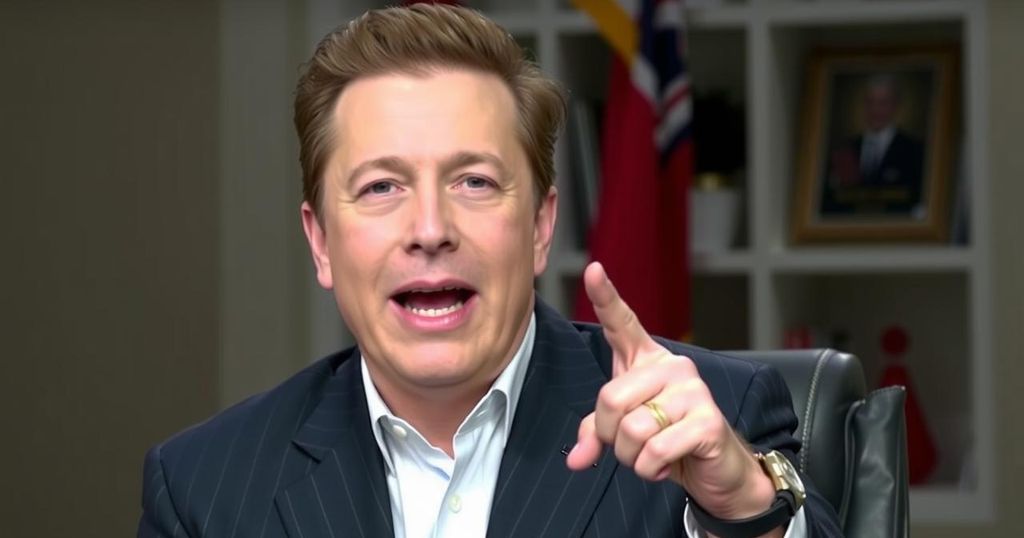Elon Musk Livestreams Support for German Far-Right Party Ahead of Elections

Elon Musk livestreamed a conversation with AfD leader Alice Weidel, endorsing the far-right party ahead of Germany’s elections, raising concerns about foreign political influence and the role of social media in amplifying extremist views.
On January 9, 2025, during a livestream on the platform X, tech entrepreneur Elon Musk engaged with Alice Weidel, the co-leader of Germany’s far-right Alternative for Germany (AfD) party, ahead of the national elections. Musk publicly encouraged support for the AfD, stating, “I am strongly recommending that people vote for AfD.” This conversation, which attracted an audience of over 200,000, addressed topics including high taxation, immigration, and Germany’s energy policies, particularly the shutdown of nuclear power plants.
Weidel exploited the platform to dispute claims linking her party to Germany’s Nazi past, asserting that historical interpretations have mischaracterized Adolf Hitler as a conservative figure. In their exchange, they emphasized free speech’s importance. As the AfD faces scrutiny from German intelligence agencies, mainstream political parties steer clear of collaboration with them, branding them as extremist. Economic discontent in Germany has sparked increased support for the AfD, which now ranks as the second-most popular party in the country despite mainstream conservatives holding a lead in polls.
Musk’s endorsement of Weidel and the AfD draws widespread concern regarding his potential influence on foreign political landscapes. In the past, Musk has faced accusations of exacerbating misinformation and inciting political friction through his comments on social media. The European Commission remains vigilant about the implications of this digital engagement, particularly regarding the potential spread of incendiary or misleading content during the electoral process.
Additionally, Musk has previously scrutinized Germany’s current government under Chancellor Olaf Scholz, claiming it is in a precarious state. He has advocated for various controversial figures and emphasized the importance of free expression in political discourse, a stance that continues to spark debates about the responsibility of tech moguls in shaping political narratives. The upcoming elections, set for February 23, 2025, will serve as significant indicators of the shifting landscape in German politics.
The livestream conversation between Elon Musk and Alice Weidel is set against a backdrop of heightened political tension and the rise of far-right sentiments in Germany and across Europe. The AfD has gained traction since its inception in 2013, with its shift towards a more extreme position becoming pronounced in recent years. Originally formed to oppose financial bailouts in the eurozone, the party’s opposition to immigration significantly bolstered its popularity, fueled by public discontent with existing government policies. The upcoming elections are pivotal, as polls show the AfD emerging as a prominent political force, rivaling traditional parties. Musk’s engagement with the AfD raises ethical questions regarding social media influence and the responsibilities of powerful individuals in shaping public opinion.
In summary, Elon Musk’s livestream interaction with Alice Weidel highlights the growing intersection of technology and politics, particularly within the context of growing far-right movements in Europe. This event not only serves as a platform for the AfD to voice its perspectives ahead of critical elections but also raises pressing questions about the role of digital platforms in facilitating political discourse and the potential ramifications of influential figures endorsing extremist viewpoints. As Germany prepares to vote, the implications of this engagement will likely resonate well beyond its borders, impacting discourse on free speech and misinformation.
Original Source: apnews.com




